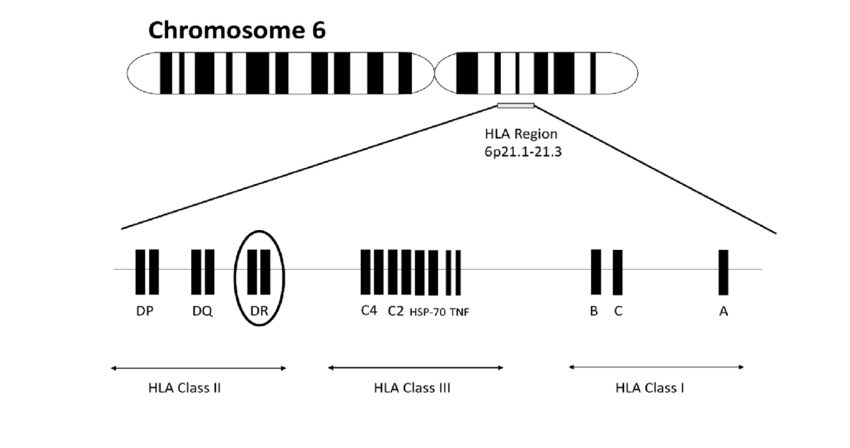
Linking Diseases and DNA
By Tamara Vayntrub, HLA Project Manager
The Human Leukocyte Antigen (HLA) system is a complex of genes on Chromosome 6 that codes for the expression of (or, in simple terms, tell the body how to design) HLA antigens. There are a multitude of different expressions, which means there is great variability in HLA antigens person to person. This is noteworthy because HLA antigens are largely responsible for regulating of the immune system and have strong links to disease susceptibility and reactions to certain drugs. Over time, researchers have been able to correlate the expression of specific genes on Chromosome 6 to an increased susceptibility to identified diseases like psoriasis or narcolepsy, as well as to determine whether the body may have an adverse reaction to certain medications.
Before molecular methods were developed, HLA typing was performed by methods that were ambiguous, making it difficult to ascertain the exact genetic expression. While older methods gave a general picture of disease risk, they weren’t very conclusive since multiple genes could impact the results.
Enter next-generation sequencing (NGS), an HLA typing method that uses advanced technology to focus in on a person’s DNA. While we have talked previously about the life-saving impact NGS has on transplantation, NGS is also used to more accurately assess disease risk and reactions to medications. With the help of NGS, researchers over the past five to 10 years have been able to identify even more correlations between HLA-markers and immune mediated diseases, malignancies, infectious diseases and adverse reaction to certain drugs.
For about five years, Stanford Blood Center’s Histocompatibility and Immunogenetics Laboratory (HLA Lab) has performed HLA typing on behalf of our hospital partners to assess patients’ disease risk. In December of 2020, the lab developed a number of HLA Disease Association Panels that allow a doctor to easily select what they want to check for in a patient (e.g., risk of developing/having celiac disease), and the HLA Lab will investigate all known DNA markers that could influence the development of said disease/drug reaction. These panels are important because, in many cases, multiple genes can be linked to one outcome, so the HLA Lab uses the panel to come up with a detailed look at different genes as well as to give an overall probability that a person currently has or will develop a certain condition/reaction.
As we continue to develop HLA typing technology, we will be better able to identify potential causes of various serious illnesses and, hopefully, better prepare and treat patients for what may come.

